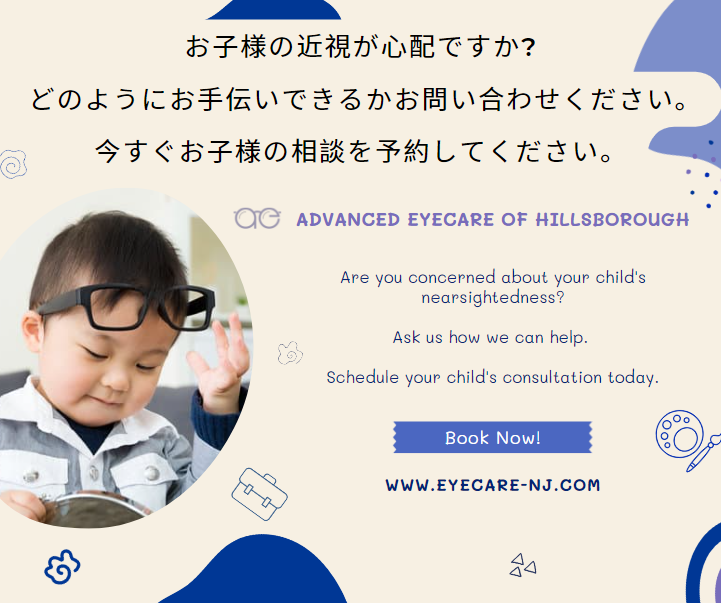Importance of Myopia Control
Japanese:
「近視コントロール」の重要性は、将来の視力と目の健康を守るために欠かせないものです。近視は進行すると、高度な度数になると視力が急激に低下する可能性があります。また、高度な近視は網膜剥離や緑内障などの目の健康問題のリスクを増加させることがあります。近視コントロールは、子供や若者の視力の変化を適切に管理し、将来の合併症を予防するために重要です。
English:
The importance of “myopia control” lies in safeguarding future vision and eye health. If myopia progresses, there’s a risk of rapid vision deterioration, especially at high levels of myopia. Additionally, high myopia increases the risk of eye health issues like retinal detachment and glaucoma. Myopia control is crucial for effectively managing changes in vision in children and young individuals, preventing potential complications down the line.
Japanese:
「近視コントロール治療」には3つの方法があります。まず、「オルソケラトロジー(Ortho-K)」は特別な硬性コンタクトレンズを夜間に装用し、眼の形状を調整して昼間は裸眼で過ごす治療です。次に、「ミシャイト(MiSight)」は日中に装用する特別なコンタクトレンズで、近視進行を遅らせることを目指します。最後に、「アトロピン」は目薬の形で使用し、瞳孔の収縮を緩やかにすることで近視の進行を抑える治療法です。どの方法も、専門家の指導のもと、患者に合った治療法を選ぶ重要性があります。
English:
There are three methods of “myopia control treatment.” First, “Orthokeratology (Ortho-K)” involves wearing special rigid contact lenses overnight to reshape the eye’s curvature, allowing for clear daytime vision without lenses. Next, “MiSight” involves wearing special contact lenses during the day to slow down the progression of myopia. Lastly, “Atropine” is administered in the form of eye drops to gently relax the pupil, aiming to slow down myopia progression. Each method requires guidance from a professional to choose the most suitable treatment for the individual.
